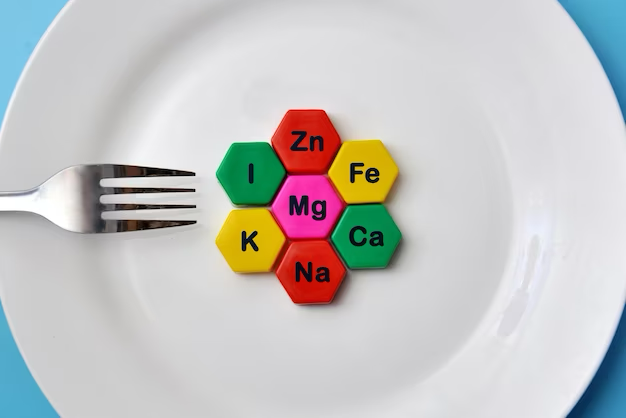I was recently asked why I test micronutrient levels for Alzheimer’s prevention or reversal of cognitive decline. Today, I’m sharing the answer with you, along with some information about the type of micronutrient testing I use that reveals how well the nutrients are absorbed by the cells.
Vitamins and minerals are considered micronutrients, and they are essential for the proper functioning of the body and brain. Deficiencies in many micronutrients can contribute to the development of Alzheimer’s disease through various mechanisms, including:
- Oxidative stress: Micronutrients such as vitamins C and E, selenium and zinc act as antioxidants, protecting the brain from oxidative damage. A deficiency in these micronutrients can lead to increased oxidative stress, which has been implicated in the development of Alzheimer’s disease.
- Inflammation: Adequate levels of micronutrients such as vitamin D, omega-3 fatty acids and magnesium are necessary for the proper functioning of the immune system and to keep inflammation in check. Deficiencies in these micronutrients can lead to chronic inflammation, which has also been linked to Alzheimer’s disease.
- Neurotransmitter synthesis: Micronutrients such as vitamin B6, B12 and folate are essential for the synthesis of neurotransmitters, including serotonin, dopamine and norepinephrine. Deficiencies in these micronutrients can lead to decreased levels of these neurotransmitters, which may contribute to the cognitive decline seen in Alzheimer’s disease.
- Energy metabolism: Micronutrients such as thiamine, riboflavin and niacin are necessary for the production of energy in the brain. Deficiencies in these micronutrients can lead to impaired energy metabolism, which has been linked to Alzheimer’s disease.
The micronutrient test I order for my clients assesses levels of extracellular and intracellular nutrients, which has several advantages over traditional blood tests, including:
- More accurate measurement of nutrient levels within cells
- Identification of nutrient deficiencies that may not show up in standard blood tests
- Personalized nutritional recommendations based on individual test results
- Improved ability to monitor the effectiveness of nutrient supplementation over time
- Increased awareness and understanding of the importance of micronutrient status in overall health and disease prevention
I’ve never tested anyone who didn’t have some important nutrient deficiencies, even those under 45 years of age. When you know what your levels are, you can optimize your diet and target your supplementation to optimize your levels. I combine this test with advanced cardiometabolic testing and gut health testing, which I’ll explain in future blogs. Followed by tests related to environmental toxins, heavy metals and mycotoxins. It takes a lot of data to understand what’s causing the cognitive decline. I can tell you without hesitation that what we find makes a difference for preventing Alzheimer’s and, often, for improving symptoms of Alzheimer’s when the recommendations are implemented.
Here’s a short testimonial a client of mine posted in our Direct Access group after he began implementing the recommendations based on his “cognoscosopy” results (the tests I mentioned above).
“Angela asked me to post my results from following ReCODE for a while. I’ve been seeing a specialist in memory issues near me in Viera, FL. She gave me a Montreal Cognitive Assessment Test (MoCA) last November, and I did poorly with a score of 24 out of a maximum of 30, indicating Mild Cognitive Impairment. A PET scan earlier had shown amyloid plaque in my brain at a level that I have a 50-70% chance of having Alzheimer’s. The good news is my recent test score was 29 out of 30. Hooray! I’ve been averaging 20 ACES on the breathalyzer this year and taking all the supplements Angela recommended, as well as following the 12/3 Ketoflex diet plus walking more regularly for exercise along with golf and some yard work. The MoCA test results reflect my feeling better as well recently, with much less brain fog and memory issues. My hands have a lot less shaking also. It’s been a lot easier to tee up my golf ball without knocking it off with my fingers. I intend to stick with the Ketoflex diet, supplements, increase my exercise and do the other things Angela recommends. I’m so happy my wife signed us up!”
This client still has another “phase” of my program to complete, after which I think he will have even more improvement.
Overall, a diet rich in a variety of vitamins, minerals and amino acids is essential for brain health, and can help reduce the risk of developing Alzheimer’s disease. Low brain energy, often due to brain insulin resistance or hypometabolism, is a significant contributor to Alzheimer’s and the right diet can “bypass” that and improve cognition. Supplements can also be helpful but need to be used in conjunction with diet and lifestyle. The protocol also includes optimizing gut health, lowering stress, sleeping well 7-8 hours each night and physical/cognitive exercise. Everything works together because everything is connected.
The testing matters a great deal. How do you know what you need if you don’t have any data.
If you have questions, feel free to schedule a consultation. If you want to read studies related to preventing or fighting Alzheimer’s with diet, here’s a link. Just remember: There’s more to it than diet for most people, and the type of keto diet we use is not the traditional keto diet.
